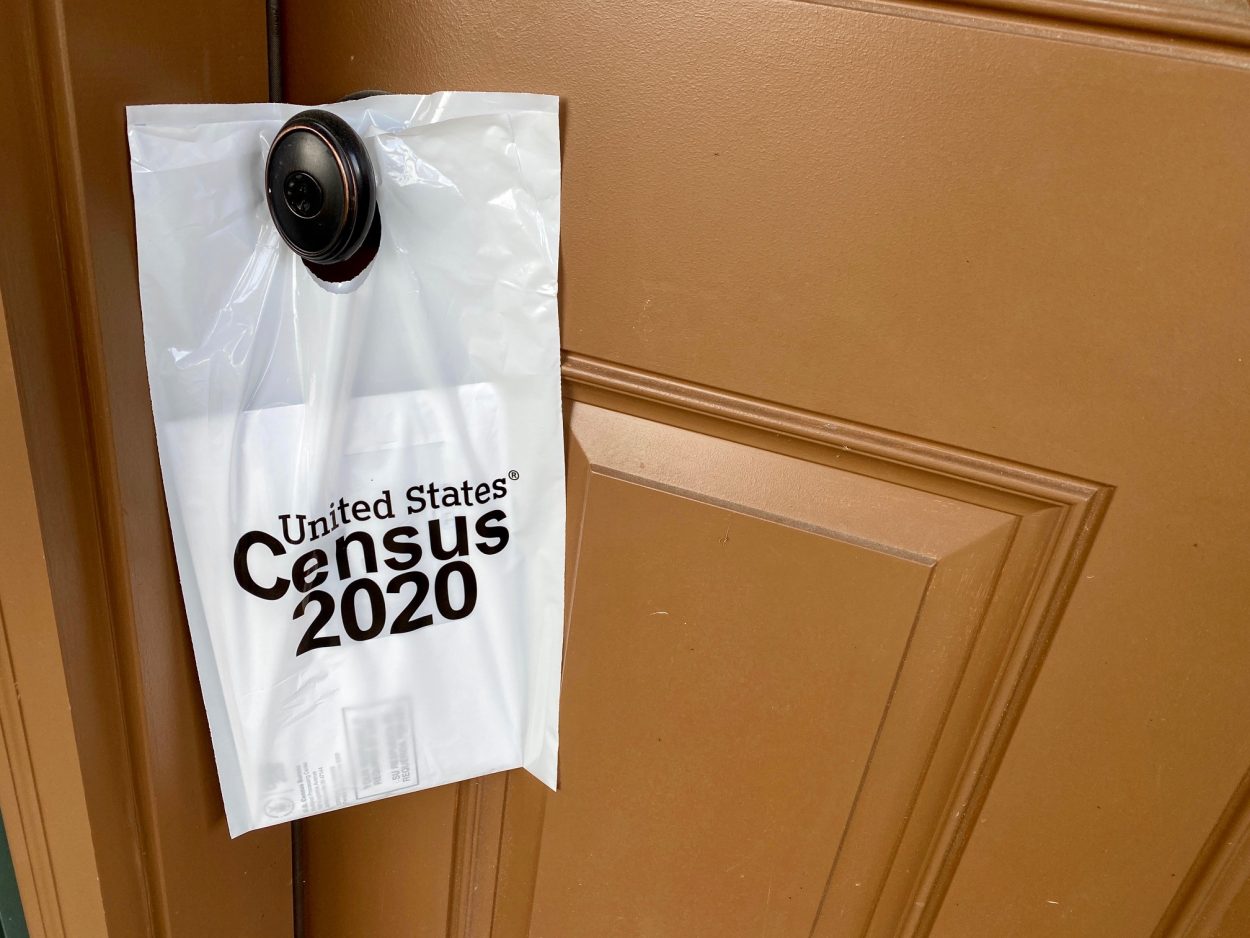
The census is back after being put on hold for the coronavirus. The survey is done every ten years as a way for the federal government to track populations and decide funding amounts. KFSK’s Angela Denning spoke with a few people in Petersburg about the local census details and has this report:
Petersburg resident Desi Burrell has been working long days, going door to door leaving a census survey for people to fill out. The questionnaire is required for every household in the nation. The good news, she says, it has only nine questions.
“They’re really wanting to know who was living in your household on April 1st,” Burrell said, “It just kind of goes into a few questions like that.”
Burrell and other census workers started the job on March 15 and they worked one week before being shut down for the COVID-19 virus. Their work started back up on May 6.
It’s been a little different than normal census years. It’s now being done through no contact. Burrell doesn’t ask people questions or help them fill out the census. She just hangs a questionnaire on their door.
“So, my job is mapping to make sure that your home is listed in our maps and I’m then I’m leaving a questionnaire for you to either do online, through the phone, or mail in,” she said.
Burrell encourages people to go online and do the census that way, which takes just a few minutes.
So, why is the census so important? It helps the government know how much funding to give each community, says Tracy Welch, Tribal Administrator for Petersburg’s tribe, Petersburg Indian Association.
“When you respond to the census you help your community get its fair share of approximately $675 Billion in federal funding per year,” she said. “Census data impacts funding things like schools, hospitals, fire departments, Medicare, Medicaid, SNAP [Supplemental Nutrition Assistance Program], library, community centers, school meal programs, things like that,” Welch said. “So, it’s really important that every ten years we get this right.”
Welch says historically, Alaska has had trouble getting accurate census counts because people live so remotely. This is particularly true for Alaska Natives. She says it’s important for PIA tribal members to be counted because that opens up local funding for things like HUD, Housing Urban Development.
“HUD uses the census data and the information that’s provided on there to allocate funding for each of the individual tribes,” Welch said. “If you’re Alaska Native but you’re not counted, your community could lose approximately $3,500 annually for tribal programs.”
In the 2010 census survey, only 27 people in Petersburg were counted as PIA tribal members. However, Welch says there are about 400 PIA tribal members according to the Central Council of Tlingit and Haida India Tribes and the Bureau of Indian Affairs.
She says it’s especially important for people to fill out the census correctly if they are in a mixed race home. She says for people’s native status to count, the native person needs to be listed as the first person on the survey.
“So if you have a native person and a non-native person, the native person needs to be listed as person number one on the census first of all,” Welch said. “Then when it gets to the question about race you need to make sure that you list your federally recognized tribe. So, if you live in Petersburg and say you’re Tlingit, you would list Petersburg Indian Association and if you’re a member of Central Council you could also list Central Council. Or, say you’re a member of two or three different tribes–if you have dual enrollment–you want to make sure you list all of those.”
She says people should not list their native corporations just the tribes to which they belong.
Besides the 2020 census survey being distributed, there is another federal government survey going on. Burrell says this has caused confusion for some local residents. The other survey is the American Community Survey, which is gathering housing and employment information. Petersburg resident Phyllis Hernandez is calling people for that survey. It is much more detailed and takes longer than the 10-year one.
Welch stresses that the 2020 census answers are extremely confidential.
“Federal law prohibits sharing your information with anyone including the IRS, immigration, etc,” said said. “Any information cannot be used to come back at you for determining your eligibility with government benefits such as SNAP [Supplemental Nutrition Assistance Program], WIC [Women, Infants, and Children], or TANIF [Temporary Assistance for Needy Families].”
Burrell agrees, saying all of the information will remain protected.
“They do not share any information with anybody,” Burrell said. “My particular questionnaire does not ask any financial information. It’s pretty much who is living in your home on April 1st of 2020.”
The census survey can be done online at Census2020.gov. If you don’t have a census ID number, just click on the link that says you don’t have one.











